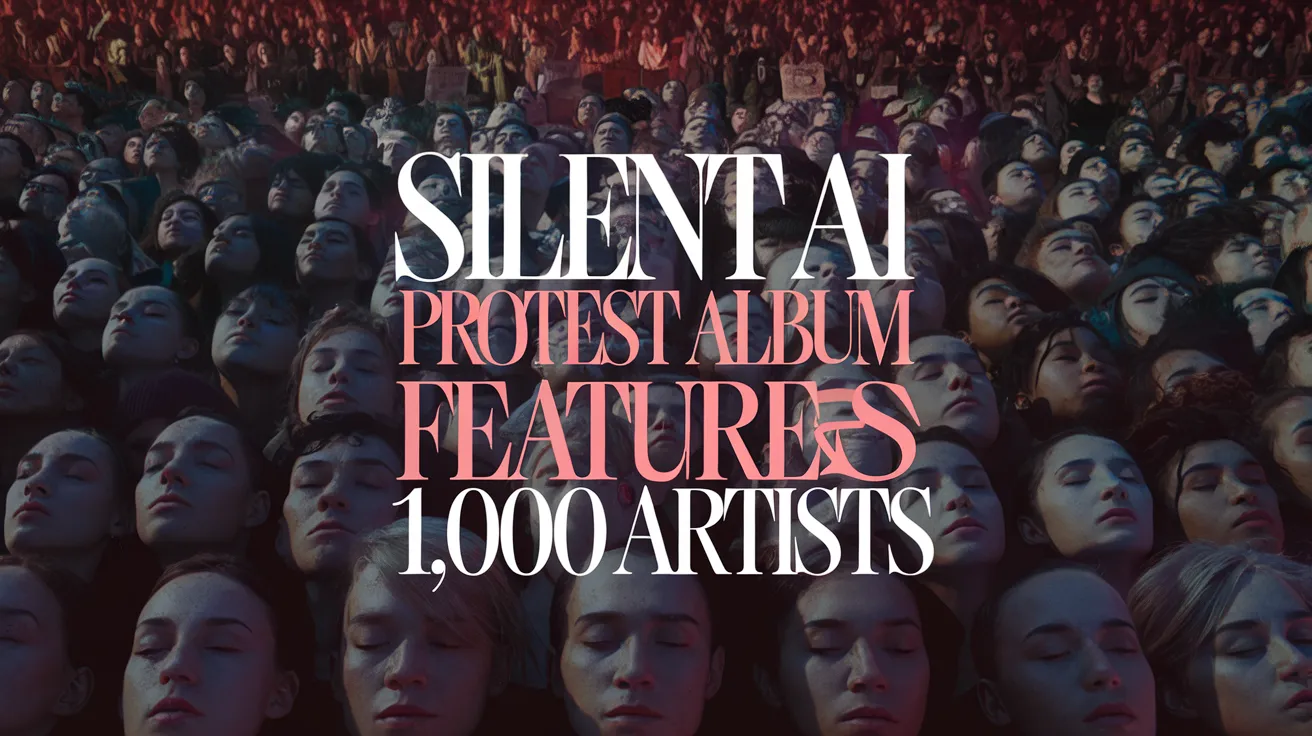Silent AI Protest Album Features 1,000 Artists

In a unique display of solidarity, more than 1,000 musicians, including notable figures like Kate Bush, Damon Albarn, and Annie Lennox, have come together to release a silent protest album titled Is This What We Want? The album serves as a response to the UK government’s proposals allowing artificial intelligence companies to utilize copyright-protected work without securing consent from the artists.
As concerns grow over the potential effects of these proposals on musicians’ livelihoods, the silent album features recordings from dormant music studios and performance spaces. Ed Newton-Rex, a composer and former AI executive behind the concept, explained, “The government’s proposal would hand the life’s work of the country’s musicians to AI companies for free, allowing those companies to exploit musicians’ work to unfairly outcompete them.” He emphasizes that such a plan not only jeopardizes musicians but is also unnecessary, advocating for a path that allows the UK to lead in AI while simultaneously preserving its thriving creative industries.
This protest is a direct opposition to government plans that include a new copyright exemption aimed at facilitating AI firms to train their algorithms using the work of creative professionals. Critics have condemned the proposed “opt-out” option as inadequate and impractical. The album consists of 12 silent tracks, with contributions from a diverse lineup of over 1,000 artists, although the specific artist for each track remains uncredited. Notably, Kate Bush has recorded one of the pieces, raising the poignant question, “In the music of the future, will our voices go unheard?”
Other prominent musicians involved in the project include Tori Amos, Billy Ocean, members of the Clash, and Oscar-winning composer Hans Zimmer. The album’s track listing poignantly conveys a message: “The British government must not legalize music theft to benefit AI companies.” Proceeds from the silence crafted by these artists will be channeled to the charity Help Musicians, which assists musicians in need.
The controversy surrounding the use of copyrighted material by AI firms stems from how these technologies are developed; AI models rely on vast data sets gathered from various sources, often including protected works. This has led to numerous lawsuits from authors, music companies, and artists seeking to protect their rights against unlicensed use. While some companies have been proactive, entering licensing agreements with AI firms, this has not alleviated all concerns.
The album’s release coincides with the closure of a government consultation on copyright law revisions, where AI companies are primarily favored in the proposed changes. Newspapers, including The Guardian, have been displaying “Make It Fair” slogans to highlight the protest against alterations perceived as preferential to major tech platforms.
A letter published in the Times from 34 leading creatives, including Stephen Fry, Andrew Lloyd Webber, and Ed Sheeran, criticizes the government’s approach as a “wholesale giveaway of rights and income” from the creative sector. Fry likened the situation to allowing “all the pests to feast on the fruit and flowers,” emphasizing the need to protect the creative industries amid governmental pursuits for growth.
A UK government spokesperson stated that the existing copyright regime is hindering the creative and AI sectors. They reiterated their commitment to consulting on a new approach that seeks to safeguard the interests of both AI developers and rights holders, aiming to create an environment where both can prosper.